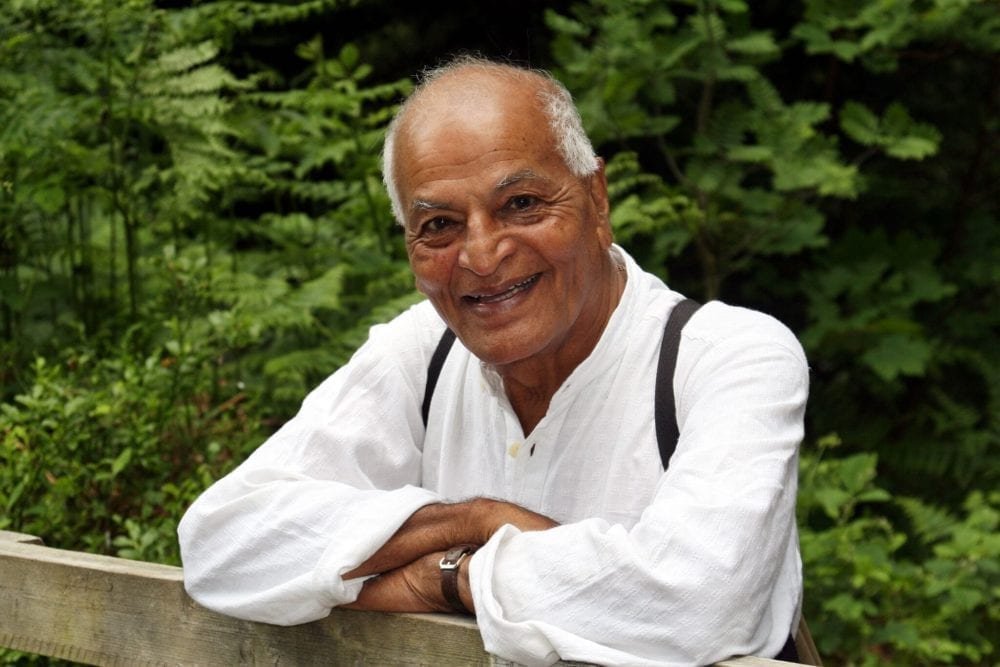This article appears in the autumn issue of MyGreenPod.com Magazine, distributed with the Guardian on 27 October 2017. Click here to read the full digital issue online
It’s not rocket science that there’s more to life than economic growth. A sense of wellbeing is what really matters, and it should be at the heart of all politics. So how do we create greater wellbeing in our world?
It’s up to each and every one us to effect change and make our voices heard. Any political and corporate change will always remain superficial and inadequate without personal change. Without individual action, these larger changes can’t – and won’t – occur.
Political change will only happen when large numbers of people practise what they believe in. Only then will there be a sufficiently large groundswell of opinion and action to coerce governments to bring in laws and structural transformations.
Gandhi said, ‘Be the change you want to see in the world’. Based on my own personal experiences of practicable, sustainable living, I would like to share 10 ways we can all, as individuals, help to effect this change.
1. Live simply
Any fool can make life complicated; it requires genius to make it simple. A high living standard, measured by wealth and material acquisition, has become the be-all and end-all of modern society. For an eco-friendly life we need to seek quality of life. We need to live more simply so that others may simply live
2. Change of attitude
Our industrial culture is human-centred and utilitarian. We value Nature because of its usefulness to us; we believe that we’re in charge and can do what we like with the world’s natural resources.
If we want a sustainable future we need to change this mindset: we need to recognise that all life has intrinsic value. Without this shift in our personal attitudes towards the natural world, no sustainable lifestyle can be achieved. In place of the utilitarian calculus, a reverential, respectful world-view is required, so we will destroy less, poison less, kill less.
3. Consume less
As Gandhi said, ‘There is enough in the world for everybody’s need, but not enough for anybody’s greed.’ 50 years ago the world’s population was three billion. Now it has doubled to six billion and humans, at their present rate of consumption, are exceeding the capacity of the Earth – something we all have to take personal responsibility for.Someone living in the west consumes 50 times more than a person in a developing nation, meaning the western population is, effectively, multiplied 50 times. Therefore, live more lightly, taking from Nature only what is needed, so as to make a smaller footprint on the Earth.
4. Waste not
Waste is a sin against Nature. Every day, millions of tonnes of waste are thrown into the natural world, which it simply can’t cope with. The pile of old cookers, washing machines, fridges, computers and TVs is now accumulating at several million tonnes a year, and most of it ends up as landfill, wasting resources and posing risks to health and the environment.
Millions of plastic bottles and bags are cluttering and clogging the system, polluting rivers and oceans. Reusing, mending and recycling must be seen as great virtues. Waste-makers simply cannot call themselves responsible citizens.
Use less harmful products when cleaning the house and washing clothes. Reuse plastic bags, or take a cloth bag when you go shopping. And rediscover the old maxim ‘make do and mend’: resist the temptation to replace utensils such as old cookers and washing machines and furniture when the old ones will do just fine.
 Play Video about This Rock Might Just Save The World
Play Video about This Rock Might Just Save The World Play Video about Play 2 hours of rock
Play Video about Play 2 hours of rock Play Video about Play 2 hours of brook
Play Video about Play 2 hours of brook Play Video about Play 2 hours of sheep
Play Video about Play 2 hours of sheep











































